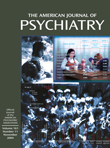Comment on Adult Baby Syndrome
Mr. A was a 32-year-old, single Caucasian man who was referred to the inpatient psychiatric unit for symptoms of depression and a suicide attempt. In addition, he had recurrent, intrusive thoughts and behaviors involving wearing diapers, crawling on the floor, “anything relating to babies,” and becoming a baby. These secretive, ego-dystonic thoughts and behaviors had plagued him since the age of 7. Furthermore, he adamantly denied any sexual gratification related to or connected to these thoughts and behaviors. During his hospitalization, he was treated with fluoxetine (titrated to an oral dose of 60 mg/day). Risperidone at an oral dose of 1 mg b.i.d. was later added to target his psychotic symptoms. He reported good relief from these interventions with regard to depressive symptoms and the aforementioned thoughts and compulsions. On admission, his score on the Yale-Brown Obsessive Compulsive Scale (3) was 22 (3 at follow-up). During his hospitalization and subsequent outpatient treatment, a psychodynamic approach was helpful in attempting to understand Mr. A and his symptoms. This was coupled with supportive psychotherapeutic techniques. Over the course of two inpatient hospitalizations and several months of intensive outpatient treatment, he improved and eventually left the area to live near family.
References
Information & Authors
Information
Published In
History
Authors
Metrics & Citations
Metrics
Citations
Export Citations
If you have the appropriate software installed, you can download article citation data to the citation manager of your choice. Simply select your manager software from the list below and click Download.
For more information or tips please see 'Downloading to a citation manager' in the Help menu.
View Options
View options
PDF/EPUB
View PDF/EPUBGet Access
Login options
Already a subscriber? Access your subscription through your login credentials or your institution for full access to this article.
Personal login Institutional Login Open Athens loginNot a subscriber?
PsychiatryOnline subscription options offer access to the DSM-5-TR® library, books, journals, CME, and patient resources. This all-in-one virtual library provides psychiatrists and mental health professionals with key resources for diagnosis, treatment, research, and professional development.
Need more help? PsychiatryOnline Customer Service may be reached by emailing [email protected] or by calling 800-368-5777 (in the U.S.) or 703-907-7322 (outside the U.S.).

